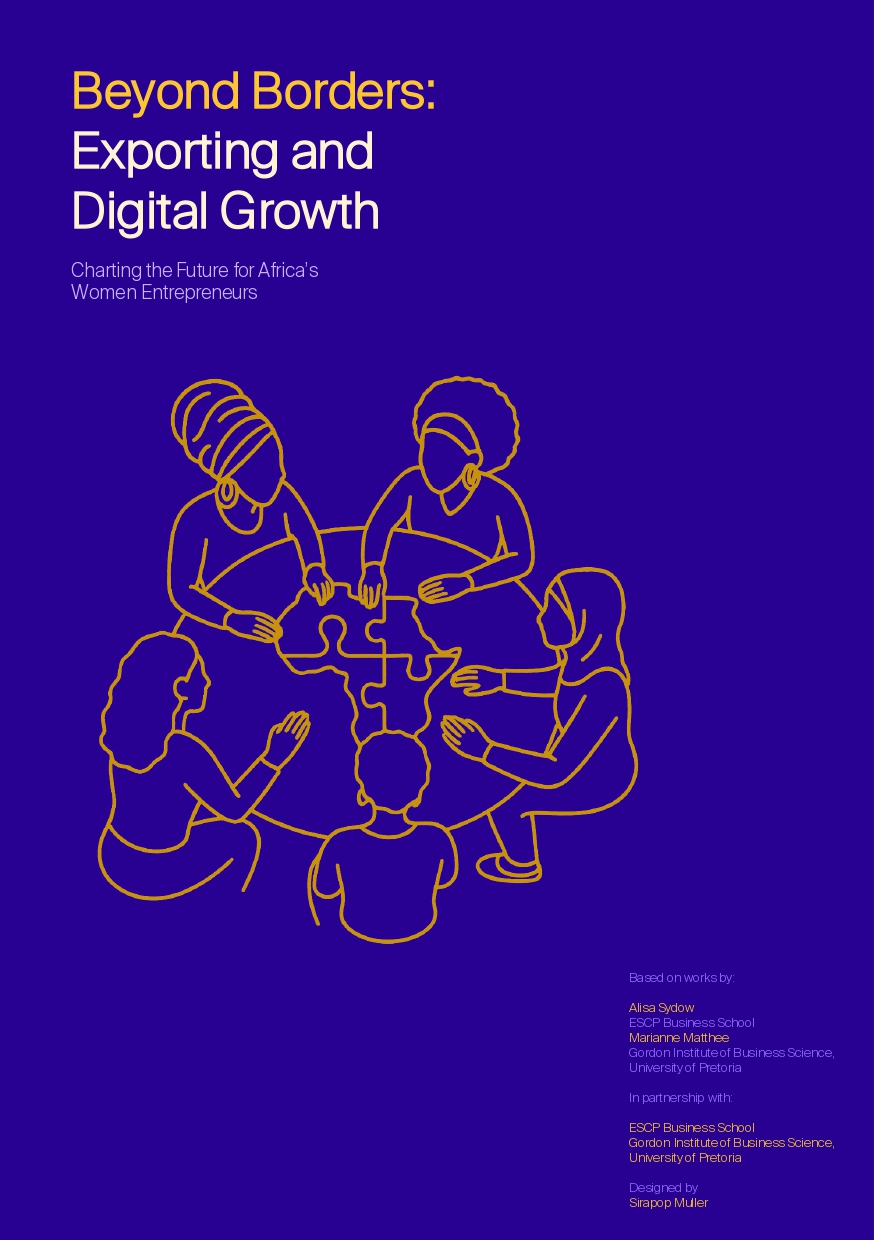From barriers to breakthroughs: how African women entrepreneurs are shaping the digital economy
Collaborative research from ESCP Business School, Gordon Institute of Business Science and UNCTAD highlights challenges and opportunities for women in the digital economy
African women entrepreneurs are playing an increasingly important role in shaping the continent’s digital and trade future. They are creating jobs, opening new markets, and driving innovation, but they continue to face persistent barriers in financing, digital infrastructure, and access to international markets.
Collaborative research between ESCP Business School, GIBS - Gordon Institute of Business Science, and UNCTAD’s eTrade for Women initiative has led to a new report, Breaking down barriers for women digital entrepreneurs: Insights from Africa, which seeks to understand and address these challenges.
Shaped by research by Prof. Alisa Sydow (ESCP), Prof. Marianne Matthee (GIBS) and based on insights from UNCTAD’s eTrade for Women network, the report draws on surveys of 94 digital entrepreneurs across various regions and 33 in-depth interviews with women founders in 13 countries in Sub-Saharan Africa.
Key insights from the research
The study highlights both systemic obstacles and the creative resilience shaping women-led digital businesses across the continent. Key findings include:
- Family responsibilities constrain growth. 60% of women in Sub-Saharan Africa said family responsibilities significantly limit their business capacity.
- Financing remains the steepest barrier. 89% rely on personal savings, with only 5% accessing external investor or grant funding.
- Infrastructure gaps limit digital adoption. While women entrepreneurs embrace digital tools, only 19% describe their businesses as fully digital, with unreliable connectivity, costs, and lack of talent remaining primary barriers.
- Exports are common but limited in scope. 64% of women-led firms export, with 75% selling to just 2–4 countries, and often reactively rather than strategically.
African women entrepreneurs are not only shaping the digital economy but also redefining trade across borders. This research shows both the systemic challenges they face and the extraordinary creativity with which they navigate them. Supporting their ventures is a critical step towards inclusive and sustainable growth.
Associate Professor of Entrepreneurship at ESCP
What stood out most is the resilience of women entrepreneurs in the face of structural barriers. Their businesses are outward-looking, innovative, and job-creating. If given adequate access to financing and infrastructure, their impact could be transformative.
Professor of economics at GIBS
From insight to action
The report's findings have been distilled into an accessible companion brochure, Beyond Borders: Exporting and Digital Growth – Charting the Future for Africa’s Women Entrepreneurs, offering practical insights and actionable guidance, including strategies for export readiness, digital adoption, and trust-building across borders.
These findings are already shaping dialogue among entrepreneurs, investors, and policymakers. On September 6, 2025, in Nairobi, Kenya, ESCP, GIBS, and UNCTAD convened women founders and ecosystem leaders at an event to share research insights and discuss strategies to improve support for women-led digital enterprises in Africa. This initiative reflects ESCP’s commitment to advancing inclusive entrepreneurship in emerging markets.
The digital economy is transforming global trade. For women in the Global South, participation in this shift is not only about individual empowerment but also about systemic inclusion. Supporting their ventures means strengthening communities, boosting resilience, and unlocking growth far beyond borders. As one entrepreneur from Tanzania put it: “We’re innovators, job creators, and leaders.”
About the authors
Dr. Alisa Sydow is an Associate Professor of Entrepreneurship at ESCP Business School (London) and founder of Nampelka, a platform supporting African entrepreneurs. Her research explores entrepreneurship in Africa, with a focus on tech-driven development and female empowerment, and has been published in top journals such as Entrepreneurship Theory and Practice.
Prof. Marianne Matthee is a Professor of Economics at the Gordon Institute of Business Science (GIBS), University of Pretoria, with nearly two decades of expertise in economic development, international trade policy, and gender dynamics. Her research explores the intersection of trade, economic opportunity, and gender, with a focus on female entrepreneurial exporters and trade-related gender inequality.
UNCTAD promotes inclusive and sustainable trade and development worldwide. Its eTrade for Women initiative supports women digital entrepreneurs across the Global South by addressing systemic barriers and amplifying women’s voices in shaping the digital economy.
Relevant link
Campuses

